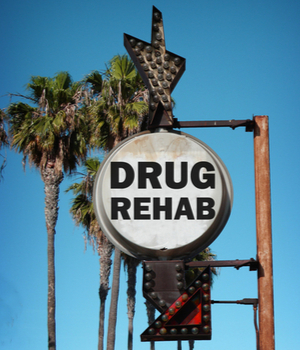Reading Time: 4 minutes
According to data, approximately 187 people in America die from opioid overdose every single day. And, for the first time in our nation’s history, people are now more likely to die from an accidental opioid overdose than a car crash.1 Medication assisted treatment (MAT), which is a combination of psychosocial therapy and FDA-approved medications, is considered the gold standard treatment for opioid use disorder.2
MAT and Addiction Treatment
 The medications currently approved by the Food and Drug Association (FDA) for use in MAT programs include:
The medications currently approved by the Food and Drug Association (FDA) for use in MAT programs include:
- Methadone: An opiate agonist that binds to receptors in the brain, effectively blocking cravings and eliminating withdrawal symptoms.
- Suboxone (buprenorphine, naloxone): A partial opioid agonist that produces weaker euphoric effects and less respiratory depression. It has a “ceiling effect” that lowers the risk of misuse, dependency, and side effects.
- Vivitrol (naltrexone): An opioid antagonist that binds and blocks the brain’s opioid receptors and reduces opioid cravings. There is no abuse and diversion potential with naltrexone.
Despite its proven benefits, there is still misinformation and confusion about MAT programs and medications used as part of the treatment protocol. As a result, those who could benefit the most from this unique form of addiction treatment are often denied the opportunity to participate in programs shown to substantially improve the odds of successful recovery.
Medication Assisted Treatment 101
Ending the confusion surrounding MAT and educating the public are essential steps forward in the fight against our nation’s opioid epidemic. Here are some important facts about MAT that everyone should know.
MAT is not substituting one addiction for another.
One of the biggest misunderstandings with MAT is that you’re simply swapping an addiction to opioid A for an addiction to opioid B.
Methadone and Suboxone (buprenorphine) are opioids, and it’s true they do create physical dependence. But dependence is very different than addiction, and dependence doesn’t involve behavioral impairments.
MAT medications are proven to help people disengage from drug-seeking behaviors and become more receptive to behavioral treatments. And this makes it possible for you to function normally, attend school or work, and participate in other forms of treatment or recovery services.
When you decide it’s time to stop taking Suboxone or methadone, you’ll work with your clinicians to slowly taper off the medication (ideally avoiding painful withdrawal symptoms altogether).
Taking methadone or Suboxone does not prevent “real” recovery.
 People who participate in MAT programs can – and do – achieve “real” recovery. As the name medication assisted treatment implies, the medications only make up one part of the MAT whole.
People who participate in MAT programs can – and do – achieve “real” recovery. As the name medication assisted treatment implies, the medications only make up one part of the MAT whole.
These anti-craving medications help to normalize brain chemistry, which allows you to successfully participate in counseling and behavioral interventions designed to support long-term recovery.
Unfortunately, some people define recovery “success” as a total abstinence from opioids – and that includes MAT medications. While this may be a realistic approach for some, it doesn’t work for everyone.
Many people need methadone, Suboxone, or naltrexone to be part of their comprehensive recovery plan, especially those who have struggled with opioids like heroin, OxyContin, or fentanyl for years.
Take diabetes, for example. Some people are able to successfully manage the disease with diet and exercise, others need medication to keep things under control. It’s the same concept with MAT programs.
According to data obtained from years of rigorous scientific research, people who participate in medication assisted treatment programs:2
- Are less likely to use illicit drugs
- Do not experience euphoria, sedation, or other functional impairments
- Do not meet the diagnostic criteria for addiction
When taken as directed, you do not feel a high from MAT medications and you do not struggle with withdrawal symptoms.
Increased access to MAT programs could end black market sales.
It’s true that Suboxone, which contains buprenorphine and naloxone, can be abused. But according to most addiction specialists, the drug is sold on the black market not as a means to get high, but as a way for people to avoid the symptoms of withdrawal.3 For example, if someone can’t find heroin, they might buy Suboxone from a friend or dealer. Or if someone can’t afford to keep buying OxyContin, they’ll turn to Suboxone. It prevents the sickness of withdrawal and gives people a glimpse into how well Suboxone curbs cravings and allows for mental clarity.
Experts also point out that Suboxone is often purchased illegally by those who want to enter a treatment program, but they either can’t afford the fees, they face long waitlist times to enter a program, or they live in an area with no access to MAT services.
In reality, the fact that people buy Suboxone to avoid withdrawal symptoms actually proves it is a legitimate medication for treating opioid addiction. And advocates agree that, if people had easier access to buprenorphine, they wouldn’t need to turn to the black market.3
Resources:
- UTSW Q&A: Experts talk about opioid abuse, risks, treatment. (n.d.). UT Southwestern, Dallas, Texas. Retrieved December 8, 2023, from https://www.utsouthwestern.edu/newsroom/articles/year-2023/aug-q-a-opioid-abuse-risks-treatment.htm
- Advancing Access to Addiction Medications: Implications for Opioid Addiction Treatment. (n.d.). https://nosorh.org/wp-content/uploads/2017/05/Access-to-MAT-by-state.pdf
- Black market for suboxone gives some A glimpse of recovery. (2018, October 9). KFF Health News. https://kffhealthnews.org/news/black-market-for-suboxone-gives-some-a-glimpse-of-recovery/

